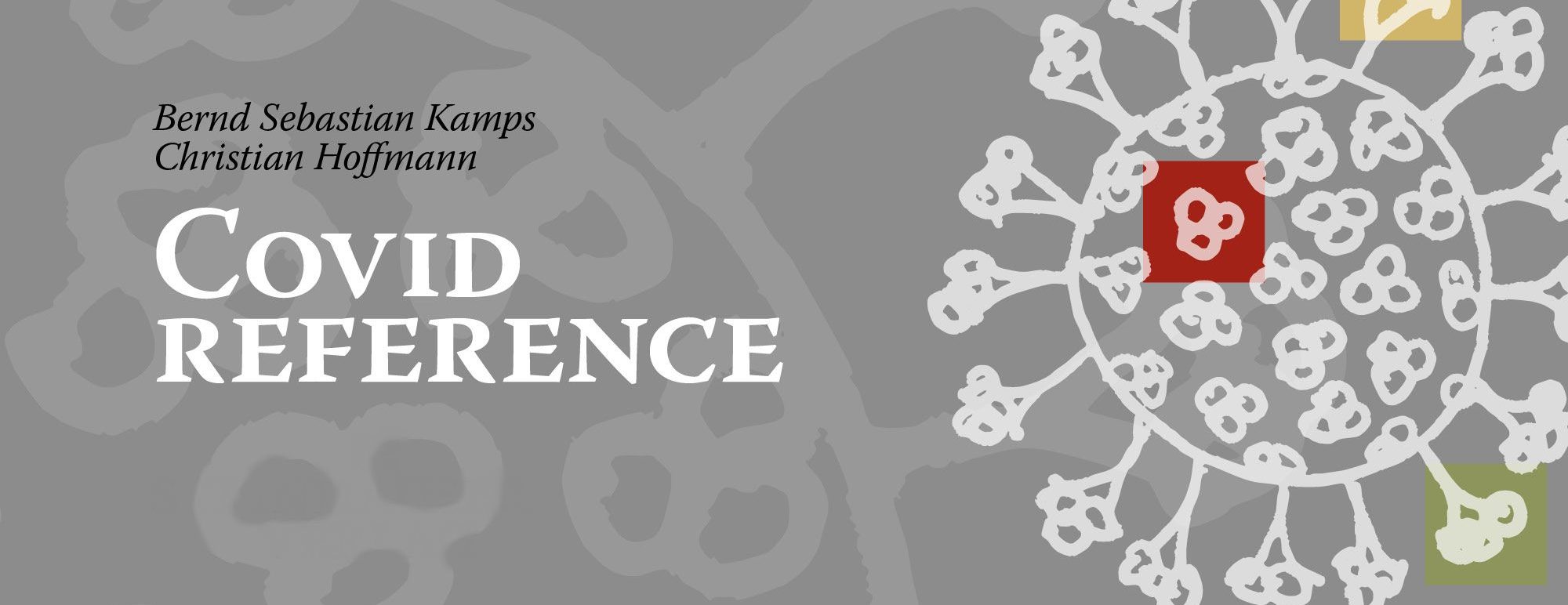Hydroxychloroquine-treatment
Hydroxychloroquine (HCQ) and chloroquine (CQ)
HCQ is an anti-inflammatory agent approved for certain autoimmune diseases and for malaria. The story of HCQ in the current pandemic is a warning example of how medicine shouldn’t work. Some lab experiments, a mad French doctor, bad uncontrolled studies, many rumors and hopes, reports without any evidence and an enthusiastic tweet that this had “a real chance to be one of the biggest game changers in the history of medicine” – hundreds of thousands people received an ineffective (and potential dangerous) drug. Moreover, many turned away from clinical trials of other therapies that would have required them to give up HCQ treatments. In some countries, the HCQ frenzy prompted serious delays in trial enrolment, muddled efforts to interpret data and endangered clinical research (Ledford 2020). Some countries stockpiled CQ and HCQ, resulting in a shortage of these medications for those that need them for approved clinical indications. Only a few months later, we are now facing an overwhelming amount of data strongly arguing against any use of both HCQ and CQ. So please, let’s forget it. Completely. But let us learn from the bad HQC story which should never happen again (Kim 2020, Ledford 2020).
Find the entire treatment chapter at https://covidreference.com/treatment
Corticosteroids – Remdesivir
Famotidine
Acalabrutinib – Anticomplement therapies – Azithromycin – Camostat – Chloroquine – Colchicine – Convalescent plasma – Corticosteroids – Cytokine blockers – Famotidine – Favipiravir – G-CSF – Human recombinant soluble ACE2 – Hydroxychloroquine – Ibrutinib – Iloprost – Interferons – JAK inhibitors – Leflunomide – Lopinavir – Monoclonal antibodies – N-acetylcysteine – Oseltamivir – (other) Protease inhibitors – (other) RdRp inhibitors – REGN-COV2 – Umifenovir
Outlook | References
No clinical benefit from Hydroxychloroquine (HCQ)
- In an observational study from New York City (Geleris 2020) of 1376 hospitalized patients, 811 received HCQ (60% received also azithromycin, A). After adjusting for several confounders, there was no significant association between HCQ use and intubation or death.
- Another retrospective cohort of 1438 patients from 25 hospitals in the New York metropolitan region (Rosenberg 2020), there were no significant differences in mortality for patients receiving HCQ + Azithromycin (A), HCQ alone, or A alone. Cardiac arrest was significantly more likely seen with HCQ + A (adjusted OR 2.13).
- A randomized, Phase IIb trial in Brazil on severe COVID-19 patients was terminated early (Borba 2020). By day 13 of enrolment, 6/40 patients (15%) in the low-dose CQ group had died, compared with 16/41 (39%) in the high-dose group. Viral RNA was detected in 78% and 76%, respectively.
- In a study of 251 patients receiving HCQ plus A, extreme new QTc prolongation to > 500 ms, a risk marker for torsades, occurred in 23% (Chorin 2020).
- In 150 patients with mainly persistent mild to moderate COVID-19, conversion to negative PCR by day 28 was similar between HCQ and SOC (Tang 2020). Adverse events were recorded more frequently with HCQ (30% vs 9%, mainly diarrhea).
- Symptomatic, non-hospitalized adults with lab-confirmed or probable COVID-19 and high-risk exposure were randomized within 4 days of symptom onset to HCQ or placebo. Among 423 patients, change in symptom severity over 14 days did not differ. At 14 days, 24% receiving HCQ had ongoing symptoms compared with 30% receiving placebo (p = 0.21). Adverse events occurred in 43% versus 22% (Skipper 2020).
- HCQ does not work as a prophylaxis. In 821 asymptomatic participants randomized to receive HCQ or placebo within 4 days of exposure, incidence of confirmed SARS-CoV-2 was 12% with CQ and 14% with placebo. Side effects were more common (40% vs. 17%) (Boulware 2020).
- No, HCQ does not work as prophylaxis, even in HCW. This double-blind, placebo-controlled RCT included 132 health care workers and was terminated early. There was no significant difference in PCR-confirmed SARS-CoV-2 incidence between HCQ and placebo (Abella 2020).
- And finally, the RECOVERY Collaborative Group discovered that among 1561 hospitalized patients, those who received HCQ did not have a lower incidence of death at 28 days than the 3155 who received usual care (27% versus 25%).
|
COVID Reference chapters:
Epidemiology | Transmission | Prevention | Virology | Immunology | Diagnosis | Clinical Manifestations | Treatment | Severe COVID-19 | Comorbidities / Special Populations | Pediatrics| Timeline | Preface
By Christian Hoffmann
